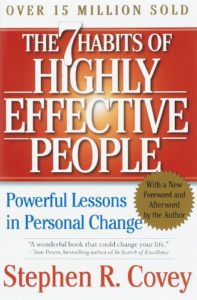
Build Your Business Upon Good Foundations
by Phil Latz
Building a strong, long lasting business has many parallels with building a house.
If the foundations are not strong, then no amount of shiny paint or fancy lighting is going to make that house a good long term investment.
So how do you build good foundations? In this article we’ll look at six key attributes.
What if you’re not starting a new business, but already have a business that is showing some cracks? Don’t worry! There’s good news for you at the end of this article.
1. You Need Adequate Resources
In the case of the foundations for 99% of Australian houses, that means concrete. If concrete costs, say $300 dollars per cubic metre and you need 10 cubic metres to pour your foundations, then you’re going to need $3,000 to pay for your concrete.
This is one area where you just can’t take shortcuts and say, ‘I can only afford half the concrete so I’ll make the foundations smaller.’ The same applies with any business. There are many ways you can save money, but every business will have certain foundational costs that you need to be able to pay for before you start. These might include government licence fees, franchise fees or a wide range of other costs.
Insufficient capital is one of the main reasons that many small businesses fail. You need to carefully work out in advance how much capital you’ll need and how you’re going to source that money, always adding a contingency margin for unforeseen additional costs.
2. You Need a Team of Experts
Have you ever tried concreting? I’ve done enough concreting jobs to know that from now on I should leave it to the experts! If you don’t know what you’re doing, it’s quite easy to make a huge mess when pouring concrete foundations. And if you don’t fix mistakes quickly before the concrete sets, you’ve got a serious problem that will be expensive to remedy.
Even if you’re starting business as a ‘one person show’ with no employees, you need a team of experts right from the start. The exact make up of your team will vary slightly depending upon the nature of your business. But there’s a good chance your team will include an accountant, lawyer, insurance broker and finance broker. Think of your key suppliers as part of your team. They want you to succeed and will almost certainly have good advice to offer if you ask them.
3. You Need Good Plans
Builders don’t just arrive on site with their tools one morning and say, ‘Right, where shall we put this house and what size shall we make it?’
A lot of time and expense has been incurred before the builder starts work. Everything from soil samples to see what type and depth of foundations are needed to a site survey to consider the best orientation of the building. Will it catch the sea breezes? Will it make the most of the available views? Will overshadowing of neighbours be an issue preventing Council approval of your house? The full list is long.
It’s no different in business. What is your target market? Who are the existing players in that market? What will be your unique selling proposition (USP)? In other words, your point of difference that is going to cause a customer to choose you over your competitors. What will be your cost per product? What sale price will the market support? What margin does this leave you? Once again, the full list is much longer than this.
It’s far cheaper to alter walls, add rooms, deepen foundations and make other alterations while your house is still a plan on a piece of paper or computer screen. Likewise it’s cheaper to plan your business in advance rather than use the, ‘Let’s just try it and see!’ approach, where too many mistakes could leave you bankrupt.
4. You Need Reinforcement
Concrete is strong in compression. Steel is strong in tension. They’re as different as chalk and cheese. But combine the two and you have reinforced concrete, something greater than the sum of the parts, that has literally revolutionised the shape of modern buildings and cities.
Likewise in business, you need people that you listen to who have a different perspective to you. That might be because they have different personalities and outlooks on life. It also might simply be a case of someone looking at your problems with a fresh set of eyes.
When you’re buried within the daily detail of your business for 40, 60, 80 hours per week, you can lose perspective. This is where a coach or business mentor can help. Other key people who can provide this vital different perspective might be your wife / husband / life partner or business partner.
As well as providing different ideas, these people are vital in giving you support and encouragement. It can be very lonely owning and running a business. Even if you’re surrounded by staff, as the owner, you face responsibilities that are often hard to share. Having discreet family, friends or professional advisors gives you a shoulder to lean on.
5. You Need Independent Expert Advice
Before the first concrete truck arrives on site to pour the foundations, a civil engineer who is independent from the builder and developer, must come on site and inspect the preparations. They look at all of the formwork that will define the boundaries of the foundations. They check that the steel reinforcing bars and mesh have been correctly specified, placed and tied.
For a standard house foundations engineer might only be on site for a single hour or less. But their expertise can determine the lifetime success or failure of those foundations. They have to come at the right time. Once the concrete has been poured, most of the critical details that determine a sound foundation will be hidden forever. It will be too late for their advice then.
It’s no different in your business. The best time for you to have an expert come in is before you commit – before you start pouring concrete. This is different to the ongoing support and reinforcement that I was talking about in the previous point. This is key expert advice on critical questions or decisions that might only have to be made once at the start of a venture or at certain cross road points. Sure, their hourly rate might seem high, but the right expert advice at the right time could save you a fortune, and possibly make you one.
6. What if You’ve Made a Mistake?
What if your business is already up and running? It might have been going along for years. Perhaps things looked strong in the early years, but now it’s cracking up due to poor foundations.
Don’t worry! In building they call it underpinning. When foundations of an existing building, even an old one, are cracking up or where never adequate in the first place, they can be dug out and replaced with new ones.
Underpinning can be expensive because it needs to be progressively done in small stages whilst each section of the building above is propped up.
Once again, this is where a business coach can help. You can’t tackle all of your foundational cracks at once. But they can help you decide which are the key sections that you need to reinforce first.
The most important thing to remember is that your cracked foundations are not going to magically fix themselves. It might require some painful digging and you might feel a little precarious during the transition, but the only way to put your business on firm foundations is to take action!







